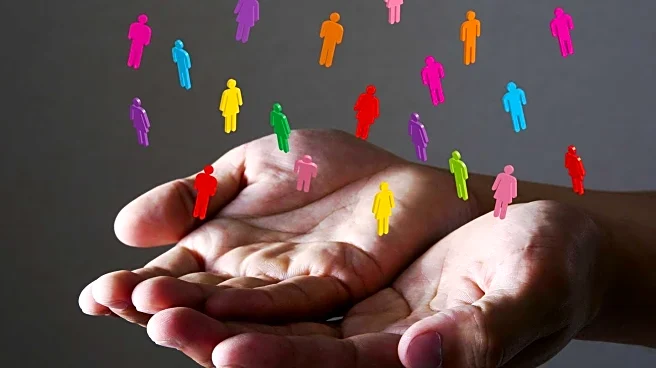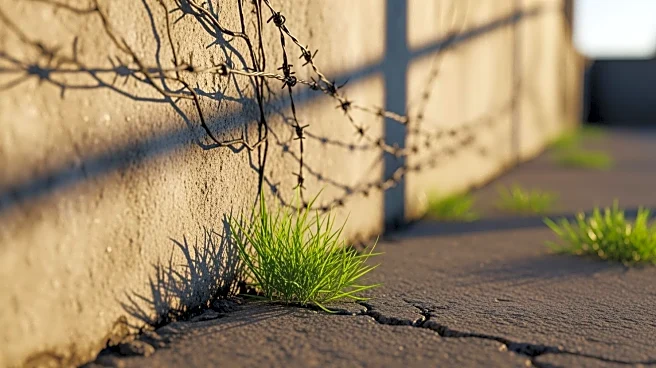What's Happening?
Grief support run clubs are emerging as a new form of community for individuals coping with the loss of loved ones. These clubs, such as E-Motion and Wear Blue: Run To Remember, provide a space for people to process grief through running. Participants often start their runs by naming the person they are grieving, creating a shared experience of remembrance. The clubs have expanded across the U.S., offering structured runs that allow for both silent reflection and conversation. The movement is growing, with clubs like Good Grief in Austin providing a supportive environment for those dealing with bereavement.
Why It's Important?
The rise of grief support run clubs highlights the importance of community and physical activity in mental health and bereavement. Running offers a repetitive, soothing pattern that can help regulate the nervous system during grief. These clubs provide social support, a key factor in mental health recovery after loss. They offer a unique space where individuals can share their experiences without fear of judgment, fostering genuine connections. As these clubs grow, they represent a shift towards more compassionate and supportive approaches to dealing with grief in society.
What's Next?
As grief run clubs continue to gain popularity, there is potential for further expansion and collaboration with mental health professionals. These clubs may partner with therapy clinics to offer integrated support services. The growing interest suggests that more communities will adopt similar models, providing accessible support for those grieving. The movement could inspire new initiatives that combine physical activity with mental health support, promoting overall well-being.
Beyond the Headlines
The development of grief support run clubs reflects broader societal changes in how grief is approached. These clubs challenge traditional notions of mourning by emphasizing active engagement and community support. They also highlight the therapeutic potential of physical activity, encouraging a holistic view of mental health care. As these clubs expand, they may influence public policy and healthcare practices, advocating for more inclusive and supportive environments for those experiencing loss.









